Rebecca of Sunnybrook Farm Unit Study PDF$5.95Personal Use Download: This is a digital download item. This item is for personal use only. You may use it for your own children as needed. If you are using the curriculum in a multiple-family co-op group or a school class, you will need to purchase the Classroom version of the curriculum. 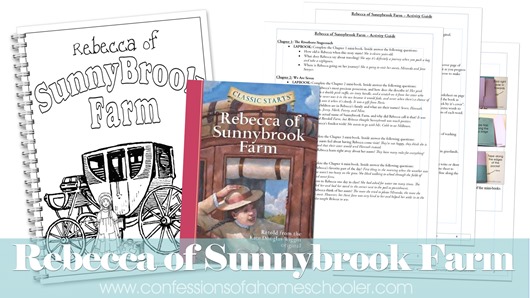
Story Summary:Rebecca of Sunnybrook Farm is a classic tale of a feisty and talkative, eleven-year-old girl named Rebecca. She is sent by her mother to live with her two aunts in town where she learns to deal with school friends, neighbors, and most of all her Aunt Miranda who finds fault with everything Rebecca does. Despite the criticism from her aunt, Rebecca remains positive and manages to change the lives of those around her, including her stubborn Aunt Miranda! Read along as we follow this charming girl through her trials and accomplishments! This unit was written to accompany the Classic Starts version of Rebecca of Sunnybrook Farm as retold from the Kate Douglas Wiggin original. The Classic Start versions are a little easier for younger readers, but you could certainly use this unit study with the original version if you have an older student. Note: I have had several questions on using my units with original versions of the books. My lapbook chapters and questions correlate directly with the Classic Starts editions. The originals will have different chapter counts and so they probably won’t match up as well. But with a little finagling I think you should be able to complete the units using any version you choose. This unit is recommended for ages 8-11.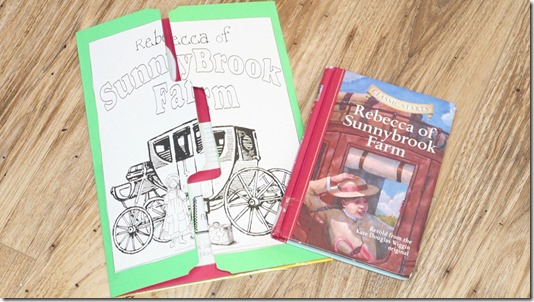 Check out my Video of Rebecca of Sunnybrook Farm Literature Unit here!
Check out my Video of Rebecca of Sunnybrook Farm Literature Unit here!
Supplies Needed:There is a supply list in the teacher’s manual for each of my literature units. This unit was written to accompany the Classic Starts version of Rebecca of Sunnybrook Farm as retold from the Kate Douglas Wiggin original. You will need to get a copy of this book online or from the local library.What’s included in the Unit Study?Each unit includes everything you need to complete the lapbook with the exception of the book itself and the file folders. I typically let my students cut out their mini-books, color them, and then add them to the lapbook as we go through each chapter. However if you have younger students you may wish to prepare their lapbook ahead of time with all of the blank mini-books already in place. Then they can color the mini-book as they get to it in the reading.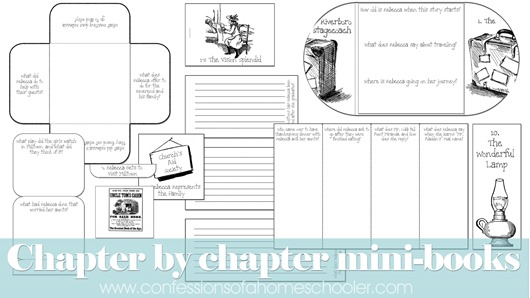 The download includes a teacher’s manual with the daily reading assignments, along with the comprehension questions and answers for each chapter. This makes it much easier for you to help your students even if you haven’t read the book yourself!
The download includes a teacher’s manual with the daily reading assignments, along with the comprehension questions and answers for each chapter. This makes it much easier for you to help your students even if you haven’t read the book yourself!
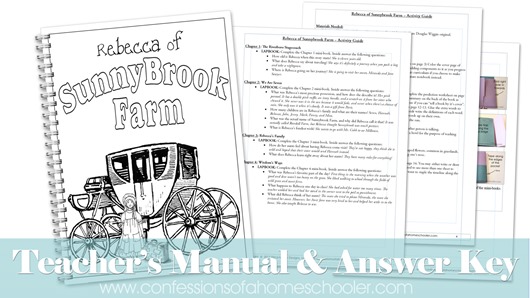 This particular book has 17 chapters with accompanying lapbooking pages and reading comprehension questions. There is also a vocabulary activity full of terms to learn throughout the story.
This particular book has 17 chapters with accompanying lapbooking pages and reading comprehension questions. There is also a vocabulary activity full of terms to learn throughout the story.
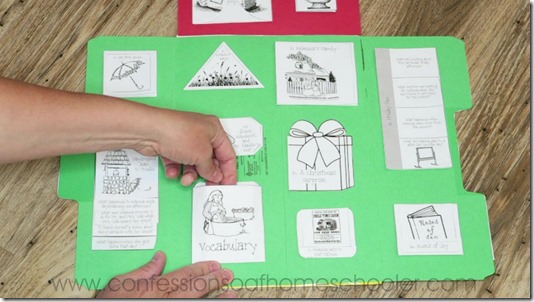 As you read through the book, each chapter has a mini-book with comprehension questions for your student to complete. Once completed your student can add that mini-book to their lapbook.
As you read through the book, each chapter has a mini-book with comprehension questions for your student to complete. Once completed your student can add that mini-book to their lapbook.
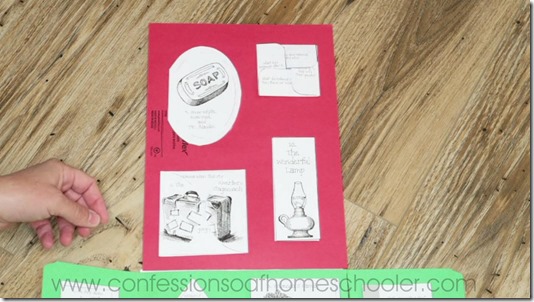 There is also one mini-book for each chapter in the book. Inside your student will answer a comprehension question that relates directly to the chapter they’ve just read. Some assignments include completing the mini-reports. But you can exclude those if you are using this unit with younger readers.
There is also one mini-book for each chapter in the book. Inside your student will answer a comprehension question that relates directly to the chapter they’ve just read. Some assignments include completing the mini-reports. But you can exclude those if you are using this unit with younger readers.
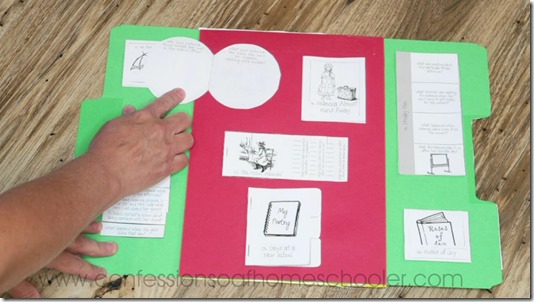 On the backside of the lapbook, we added a pocket where we store the reports and story timeline.
On the backside of the lapbook, we added a pocket where we store the reports and story timeline.
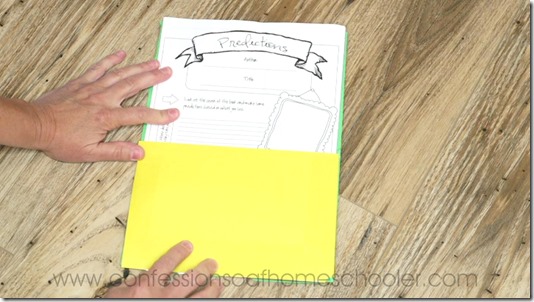
What age is this unit recommended for?I normally recommend my literature units for elementary level readers grades 1-5. You can assign them out individually to your student so they read on their own, then complete the mini-book assignment for each chapter. There are writing assignments for each chapter as your students answer comprehension questions from the reading. So you’ll just want to make sure they’re comfortable writing. Or you can read it together as a group if you have younger readers, then have them complete the mini-book assignments when you’re done with each chapter.How long does the literature unit take?That really depends on your child’s reading speed, and how many chapters there are in the book! And how fast your child reads through the chapters as well. Each one varies in length, and you can easily modify these units to fit your schedule. So for example, you can assign one chapter per day plus the associated mini-book assignments, or you can have them do 2-3/week. It’s totally up to you, your schedule, and your student.For older students:This unit includes 5 reports that your students can complete. If you have older readers, have them do these reports to make the unit a bit more challenging. If you have younger readers, you might prefer to ask the questions verbally so they aren’t having to write a report, or skip them all together. It’s totally up to you!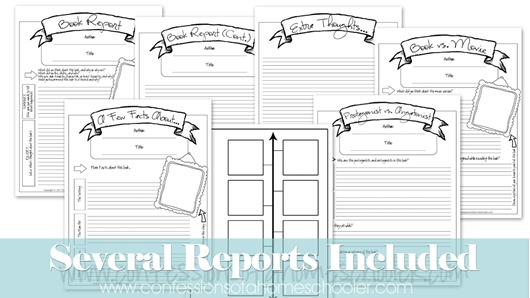 The reports include:
The reports include:
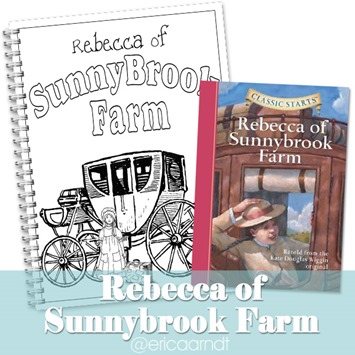 Customers who bought this product also purchased... |